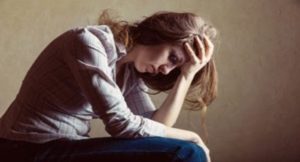By Marilee Feldman, LCPC, CADC
Elizabeth sat in front of me in her therapy session crying. If anyone had a reason to be stressed out, it was her. The parent of a child with a severe lifelong disability, it was a daily challenge to get her own basic needs met and cope with the storm of emotions brought on by the changes in her life. This week, however, her tears came from gratitude. A group of teachers and health care professionals had recently come to her home for a meeting, and the impact was extraordinary: For the first time, outsiders were seeing what her life was like, validating the difficulty she faced and confirming that she was doing a great job with her son. “This week, things seemed easier,” she said, “because I didn’t feel so alone.”
In another session, though, she talked about the impact of our current culture of violence and political divisiveness on her life. “Every time I open my computer or turn on the TV, I see so much violence, anger, and hatred. It feels like the world is somehow ending, that the trust I have in it and in people in general is fading.” It was adding to the challenge of her already difficult life, weighing her down further. In contrast to the home visit, this issue made her feel anxious, hopeless, and alone. Although she sometimes felt supported by others, she didn’t feel supported by the world, and it was impacting her deeply.
We don’t always realize just how much we are personally impacted by the world around us. More and more, therapists are hearing how the current political climate and 24/7 exposure to it in the news and on social media are causing stress, hopelessness, anxiety, and depression. A recent study found that hearing about what politicians and the government are doing is the most frequent source of daily stress, coming in ahead of common annoyances such as commuting, doing chores, and maintaining family schedules. People are questioning how, when we’ve been taught all our lives to be kind, considerate, and fair, people who break all these rules are able to become leaders in our society. (And this could be said about members of either political party.) Our belief in the world as fair, reasonable, and stable is shattered, and along with it goes our sense of optimism, faith in humanity, and trust that the world will somehow support us. We may feel powerless, suspicious, and defeated. And if it’s affecting us adults this way, think of what it must be doing to our children in terms of their own emotional and spiritual well-being.
Any marital therapist will tell you that a critical task in saving a relationship is to get each member less focused on meeting their own needs and more focused on what is good for their partner and the relationship. Similarly, if we were less polarized, if we were focused less on ourselves and more on what builds the kind of world we want, might we all feel just a little bit better? Research shows that when we’re invested in our communities and something larger than ourselves, our well-being is greatly enhanced.
Take a moment to imagine how your life might change if the world were a different place right now. If there was less discord and our culture was more harmonious, would you perhaps feel the ground beneath your feet differently? Would that, perhaps, make it somehow easier to cope with the struggles you face? I suggest it would, and that if we all found a way to make a small contribution in our own lives toward greater harmony in the world, we would each improve our own lives.



